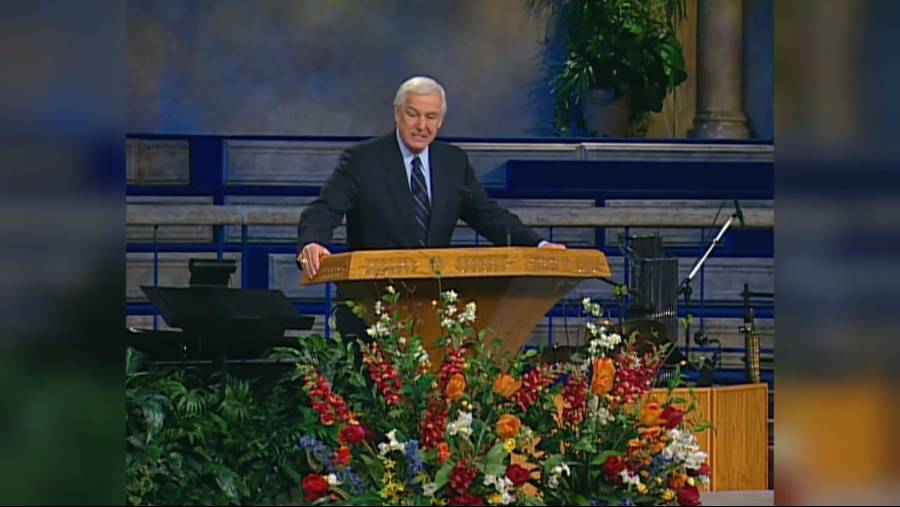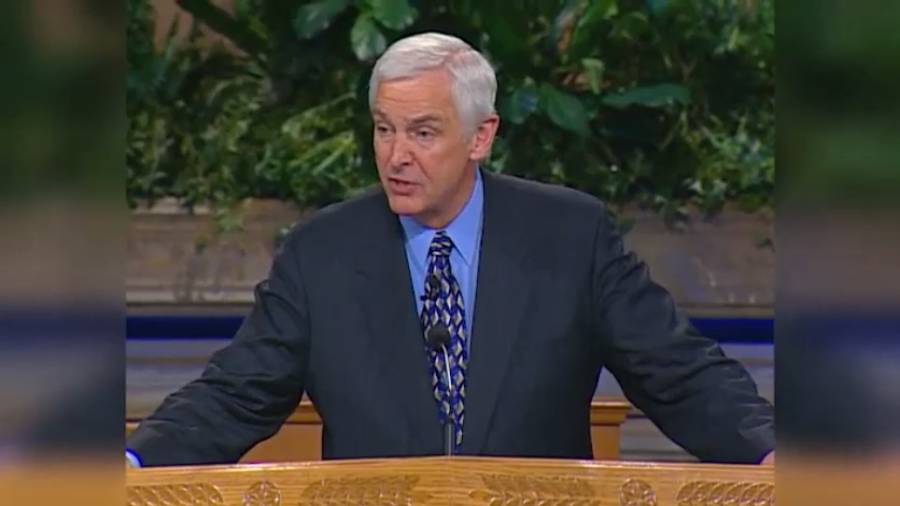

Dr. David Jeremiah Presents
Living inthe Ageof Signs
Online Destination

Living in the Age of Signs
Online Destination
When putting letters into alphabetical order, do you sing the alphabet song? Does the melancholy sound of Taps alter your mood? For centuries, educators have harnessed the power of music to aid memorization, and entertainers have struck emotional chords through musical compositions. Music engages our hearts, minds, and souls like no other force on earth. The Bible mentions "music" and "musical" 91 times (NKJV version). Of that number, 74 references are related to worshiping God.
Even if you do not consider yourself to be musically minded, Scripture is clear that music will be an important part of your experience in heaven. Let's look at what the Bible says about heavenly worship and its implications for us today.
Worshiping Together in Christ
The book of Revelation makes it clear that massive gatherings of saints will celebrate in heaven's worship experiences. Here is a sampling of these.
Then I looked, and I heard the voice of many angels around the throne, the living creatures, and the elders; and the number of them was ten thousand times ten thousand, and thousands of thousands, saying with a loud voice:
"Worthy is the Lamb who was slain
To receive power and riches and wisdom,
And strength and honor and glory and blessing!"
—Revelation 5:11–12
And I heard a voice from heaven, like the voice of many waters, and like the voice of loud thunder. And I heard the sound of harpists playing their harps. They sang as it were a new song before the throne….
—Revelation 14:2–3
And I heard, as it were, the voice of a great multitude, as the sound of many waters and as the sound of mighty thunderings, saying, "Alleluia! For the Lord God Omnipotent reigns!"
—Revelation 19:6
If we enjoy choirs and orchestras here on this earth, imagine what it will be like when we hear the celestial choirs, accompanied by heavenly orchestras, lifting praise to Almighty God around the throne! And we will be part of that in heaven.
In heaven, worship is not about one, it's about many. Worship is really "worth—ship"—ascribing to Jesus what is His by virtue of His nature.
Corporate worship is necessary. We need the church! And we need each other. There is no such thing as individual Christianity. The word "saints" is always plural in the Bible.
Crescendo of Worship
Worship in heaven just keeps getting bigger and better. It crescendos. In music, "crescendo" means to get louder and louder, to get bigger and bigger; to make more and more of what started as small. A crescendo is to finish big! And the book of Revelation observes an obvious crescendo in praise and worship.
A Twofold Doxology:
. . . to Him be glory and dominion forever and ever. Amen.
—Revelation 1:6
A Threefold Doxology:
You are worthy, O Lord,
To receive glory and honor and power;
For You created all things,
And by Your will they exist and were created.
—Revelation 4:11
A Fourfold Doxology:
And every creature which is in heaven and on the earth and under the earth and such as are in the sea, and all that are in them, I heard saying:
"Blessing and honor and glory and power
Be to Him who sits on the throne,
And to the Lamb, forever and ever!"
—Revelation 5:13
A Sevenfold Doxology:
Blessing and glory and wisdom,
Thanksgiving and honor and power and might,
Be to our God forever and ever.
—Revelation 7:12
In churches today, we also love to do that in our worship. We like to end big! We sometimes start small and keep changing keys as the music gets louder and bigger and mightier. That's biblical! That's going to happen in heaven, and here on earth we're just rehearsing. Never in the history of Christianity has there been a greater emphasis on worship and praise than there is today. God's people are finding what it means to really worship God with all of their hearts and souls and minds, because one day that's how it's going to be in heaven. Heaven will be a grand crescendo of worship throughout eternity.
Start Rehearsing Today for Heaven's Choir
You and I are constantly bombarded with the reality of this world. Television, radio, and newspapers are incessantly getting us to focus on this world and on our present reality and all of its problems. Yet this reality is in contrast to the reality of heaven. Christians often live as though the unseen eternal things are somehow less real than what we can see, but according to Scripture, they are more real.
It is through worship that our spirits are lifted up into the heavenlies. It is through worship that we are made to see God as John saw Him. And it is through worship that our lives start to have a perspective that spares us from the rollercoaster rides that used to dominate us before we discovered what it is like to really worship Almighty God.
As we rehearse here on earth for the grand worship in heaven, keep these things in mind:
Worship is not about us—it's about Him! Worship is to be offered up to the Lord from our heart, soul, and mind, knowing that the object of our worship is on the throne that we'll see when we look through the door in heaven. Worship gets us in tune with God.
Worship is not about here; it's about there. One of the main purposes of worship is to get our minds off the things of this earth and onto the things in heaven. And only as we're able to do that can we ever hope to function with integrity in our lives. When we see heaven, earth starts to make more sense.
Worship is not about now; it's about then. Worship is the avenue that leads us from the emptiness of this world to the fullness of the next world. When we fail to worship, we confine ourselves to the despair of this life.
For a more complete study of worship, turn to chapter 17 in The Book of Signs.

How to Forget
Today’s Audio Devotion:
How to Forget
Why haven’t you forgotten your home address? Why haven’t you forgotten your phone number? By contrast, why have you forgotten most of the things that have happened in your life? We remember those things that we think about often and forget those things we ignore.
Joseph could have been a bitter man based on all the things that had been done to him—especially by his brothers. But when he was reunited with them, he not only forgave them, but he also acted as if they had never harmed him in the first place. And that is the evidence for forgiving and forgetting—acting as if the harm had never occurred. When it came time to bring his father’s family from Canaan to Egypt, he did everything possible to meet their needs. He treated his brothers as if they had never done anything ill towards him. We may never literally forget an injury done to us, but if we have truly forgiven, we will act as if it never occurred.
If there is someone you have forgiven but not forgotten, ask God for grace to act as if the injury had never happened.
God does not wish us to remember what He is willing to forget.
George A. Buttrick










